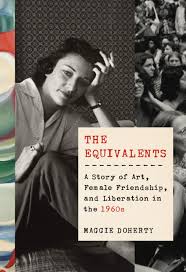
I rarely reread fiction, and when I do it is usually classics such as Jane Austen or Henry James. But recently I saw a reference to Rosamunde Pilcher and her Cornwall settings in a blog. Since I want to visit Cornwall, I follow several Cornwall blogs and thoroughly enjoy my correspondence with their authors. I decided to reread “The Shell Seekers,” a novel I last read in 1987 when it was published.
I hadn’t remembered much of the plot, read when I had just turned 40. It turns out to not matter at all. In the intervening years I had turned 73, and it was as if I was discovering the novel for the first time. Centering on a mother in her 60’s and her three adult children, the novel uses the mother’s reflections to explore her life and her children. Clearly I had paid no attention to the mother as I read it the first time, and had only focused on the adult sibling interactions, so reminiscent of my own.
I find it increasingly difficult to find contemporary fiction engaging. Ennui, broken marriages, gender confusion and fast paced urban life no longer interest me much. I similarly have no patience with dystopian writing, nor with authors trying to wow me with their “new” and “cutting edge” techniques. I assure you that cuts the selections down very rapidly.
In my reading experience, depictions of elders written by young adults often fail to capture the genuine complexity of old age . The nuances, bittersweet realities, mild regrets and loss of important companions which fill my life are perfect topics for fiction, but not for the young writer. Pilcher, who wrote “The Shell Seekers” in her 60’s brings a depth of experience both of life and of writing to the novel. I have felt known and described countless times in the book. I am grateful for the return to the novel. I look forward to finding other fiction I may have overlooked in the past. Recommendations are welcome.
 We have had a great run, but I am saying good bye to my beloved IMac. It has served me as faithfully as all of its predecessors over the last forty years. I remember my state of the art Leading Edge computer which allowed me to retire my IBM Selectric typewriter. I could now “process” words and more. I could “cut and paste.” ( Ironic that the old journalism terms were used for this new machine’s capabilities.) So Word Perfect and MS-DOS and games that were all text based are in the past. So many skills so quickly obsolete. But I should be able to make a fairly smooth transition this time.
We have had a great run, but I am saying good bye to my beloved IMac. It has served me as faithfully as all of its predecessors over the last forty years. I remember my state of the art Leading Edge computer which allowed me to retire my IBM Selectric typewriter. I could now “process” words and more. I could “cut and paste.” ( Ironic that the old journalism terms were used for this new machine’s capabilities.) So Word Perfect and MS-DOS and games that were all text based are in the past. So many skills so quickly obsolete. But I should be able to make a fairly smooth transition this time.









